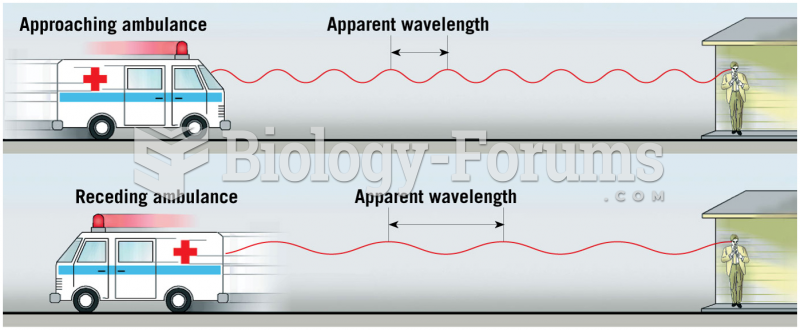|
|
|
Most fungi that pathogenically affect humans live in soil. If a person is not healthy, has an open wound, or is immunocompromised, a fungal infection can be very aggressive.
According to the Migraine Research Foundation, migraines are the third most prevalent illness in the world. Women are most affected (18%), followed by children of both sexes (10%), and men (6%).
Many medications that are used to treat infertility are injected subcutaneously. This is easy to do using the anterior abdomen as the site of injection but avoiding the area directly around the belly button.
Warfarin was developed as a consequence of the study of a strange bleeding disorder that suddenly occurred in cattle on the northern prairies of the United States in the early 1900s.
Parkinson's disease is both chronic and progressive. This means that it persists over a long period of time and that its symptoms grow worse over time.
 A Bottlenose Dolphin (Tursiops truncatus) surfs the wave of a research boat on the Banana River, nea
A Bottlenose Dolphin (Tursiops truncatus) surfs the wave of a research boat on the Banana River, nea
 This girl ran four spinning machines in a cotton mill in Whitnel, North Carolina. Only 4 feet, 3 inc
This girl ran four spinning machines in a cotton mill in Whitnel, North Carolina. Only 4 feet, 3 inc





